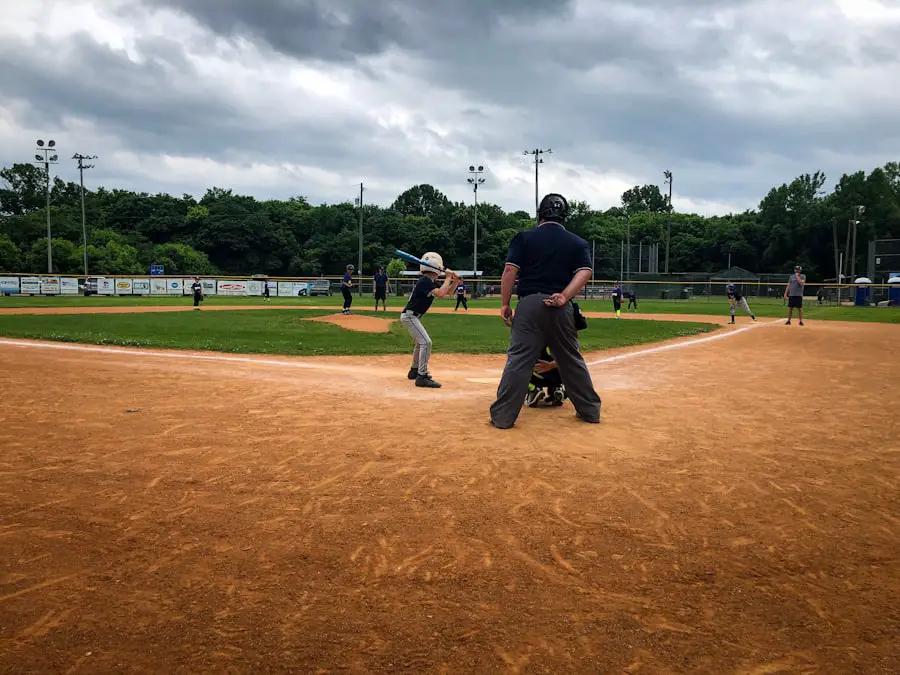Travel ball baseball represents a competitive level of youth baseball that transcends the traditional recreational leagues. It is designed for players who aspire to enhance their skills, compete at higher levels, and potentially gain exposure to college scouts or professional recruiters. Unlike local leagues, travel teams often participate in tournaments across various regions, which can involve significant travel and commitment from both players and their families.
The structure of travel ball typically includes a more rigorous practice schedule, advanced coaching, and a focus on skill development, making it an attractive option for serious young athletes. The age range for travel ball players can vary widely, often starting as young as eight years old and extending into high school. Teams are usually organized by age groups, and players are selected based on their skill level, athleticism, and potential.
The competitive nature of travel ball means that players are not only honing their baseball skills but also learning valuable life lessons about teamwork, discipline, and resilience. Parents play a crucial role in this environment, as they often need to balance the demands of travel, time commitments, and financial investments associated with being part of a travel team.
Key Takeaways
- Travel ball baseball is a competitive level of youth baseball that requires commitment and dedication from players and families.
- Building a strong coaching staff is essential for providing players with quality instruction and guidance.
- Recruiting players and families involves creating a positive and welcoming environment to attract and retain talent.
- Securing field and facility access is crucial for ensuring that the team has a place to practice and play games.
- Creating a budget and fundraising plan is necessary to cover expenses such as uniforms, equipment, and travel costs.
Building a Strong Coaching Staff
Coaching Experience and Expertise
Coaches should ideally have experience playing at a high level, whether in college or professionally, as this background can lend credibility and insight into advanced techniques and strategies. Furthermore, they should be adept at teaching fundamental skills while also fostering a love for the game among players.
A Well-Rounded Coaching Staff
In addition to head coaches, a well-rounded coaching staff may include assistant coaches who specialize in specific areas such as pitching, hitting, or fielding. This specialization allows for more focused training sessions and can significantly enhance player development. Moreover, having a diverse coaching staff can bring different perspectives and methodologies to the program, enriching the overall learning experience for the players.
Building Positive Relationships
It is also essential for coaches to establish a positive rapport with both players and parents, as open lines of communication can help address concerns and foster a supportive team environment.
Recruiting Players and Families

Recruiting players for a travel ball team involves more than just identifying talented athletes; it requires building relationships with families and creating a sense of community around the team. Coaches and team organizers often attend local games and showcases to scout potential players, but they must also engage with families to convey the values and goals of the program. This outreach can include hosting informational meetings where parents can learn about the team’s philosophy, commitment expectations, and the benefits of participating in travel ball.
Effective recruitment also involves showcasing the team’s successes and opportunities for player development. Highlighting past achievements, such as tournament victories or individual player advancements to higher levels of competition, can attract families looking for a serious commitment to baseball. Additionally, providing testimonials from current players and parents can help illustrate the positive experiences associated with being part of the team.
Ultimately, creating an inclusive atmosphere where families feel valued and invested in their child’s development is crucial for long-term success in recruiting.
Securing Field and Facility Access
| Access Control Measures | Number of Incidents | Security Breaches |
|---|---|---|
| Biometric Access | 5 | 0 |
| Keycard Access | 10 | 2 |
| Security Guards | 3 | 1 |
Access to quality fields and facilities is paramount for any travel ball program aiming to provide its players with the best training environment possible. Securing these resources often involves building relationships with local parks departments, schools, or private organizations that manage athletic facilities. Coaches or team administrators should proactively reach out to these entities to negotiate field usage agreements that align with the team’s practice and game schedules.
In addition to securing practice fields, teams may also need access to indoor training facilities during inclement weather or off-season periods. These facilities can provide essential resources such as batting cages, pitching mounds, and weight training equipment that are vital for player development. Establishing partnerships with local gyms or sports complexes can be beneficial in this regard.
Furthermore, maintaining good relationships with facility managers can lead to preferential scheduling or reduced rental fees, which can significantly impact the overall budget of the travel program.
Creating a Budget and Fundraising Plan
Developing a comprehensive budget is critical for the sustainability of a travel ball program. Expenses can accumulate quickly, including costs for uniforms, tournament fees, travel expenses, field rentals, and coaching stipends. A detailed budget should outline all anticipated costs while also considering potential income sources such as player fees and fundraising efforts.
Transparency in budgeting is essential; parents should be informed about where their money is going and how it contributes to the overall experience of their children. Fundraising plays a vital role in offsetting costs associated with travel ball participation. Teams often engage in various fundraising activities such as car washes, bake sales, or sponsorship drives to generate additional revenue.
Some programs may also explore partnerships with local businesses that can provide financial support in exchange for advertising opportunities at games or on team apparel. Additionally, leveraging online crowdfunding platforms can help reach a broader audience for donations. A well-structured fundraising plan not only alleviates financial burdens but also fosters community involvement and support for the team.
Establishing Team Rules and Expectations

Establishing a Disciplined Environment
Setting clear rules and expectations is essential for creating a disciplined environment within a travel ball team. These guidelines should cover various aspects of team conduct, including attendance at practices and games, behavior on and off the field, and adherence to training regimens. By establishing these rules early on, players understand the commitment required to be part of the team and are more likely to hold themselves and their teammates accountable.
Effective Communication of Expectations
It is crucial to communicate these expectations effectively to both players and parents. A team meeting at the beginning of the season provides an opportunity to discuss rules in detail and address any questions or concerns. Additionally, having written documentation outlining these expectations serves as a reference point throughout the season.
Consistent Enforcement and Positive Reinforcement
Consistent enforcement of rules is vital; coaches must be prepared to address violations promptly while also recognizing positive behavior that aligns with team values. This balanced approach helps maintain a disciplined environment and encourages players to adhere to the established rules and expectations.
Planning the Team Schedule and Travel
Creating a well-organized schedule is vital for ensuring that players can balance their commitments while maximizing their development opportunities. The schedule should include regular practices, tournament dates, and any additional training sessions or team-building activities. It is important to consider factors such as school calendars, holidays, and other local events that may impact attendance when planning the season’s itinerary.
Travel logistics are another critical component of scheduling for a travel ball team. Coordinating transportation for players and families can be complex; teams may choose to arrange group travel options or encourage carpooling among families to ease logistical challenges. Additionally, securing accommodations for out-of-town tournaments requires advance planning to ensure that all players have suitable lodging arrangements.
Clear communication regarding travel plans is essential; families should be kept informed about itineraries well in advance to facilitate smooth transitions during busy tournament weekends.
Developing a Player Development and Training Program
A robust player development program is at the heart of any successful travel ball organization. This program should encompass not only skill development but also physical conditioning, mental preparation, and strategic understanding of the game. Coaches should design training sessions that focus on fundamental skills such as hitting mechanics, pitching techniques, fielding drills, and base running strategies while also incorporating strength training and conditioning exercises tailored to young athletes.
In addition to physical training, mental conditioning plays an increasingly important role in player development. Teaching athletes how to handle pressure situations, maintain focus during games, and develop a growth mindset can significantly enhance their performance on the field. Incorporating video analysis into training sessions allows players to review their techniques critically and make necessary adjustments based on feedback from coaches.
Furthermore, fostering an environment where players feel comfortable discussing their challenges and successes encourages personal growth both as athletes and individuals. By focusing on these key areas—understanding travel ball dynamics, building strong coaching staff relationships, recruiting effectively, securing facilities, budgeting wisely, establishing clear expectations, planning schedules meticulously, and developing comprehensive training programs—travel ball organizations can create an enriching experience that not only enhances players’ skills but also instills lifelong values that extend beyond the baseball diamond.
If you are looking to start a travel ball baseball team, you may also be interested in learning about the best power bank for international travel. Having a reliable power bank can ensure that your devices stay charged while on the go, allowing you to easily communicate with team members, access important information, and capture memories of your travels. Check out this article on the best power bank for international travel to find the perfect option for your needs.
FAQs
What is a travel ball baseball team?
A travel ball baseball team is a competitive youth baseball team that travels to different locations to compete in tournaments and games against other travel teams.
What are the benefits of starting a travel ball baseball team?
Starting a travel ball baseball team can provide young players with the opportunity to compete at a higher level, gain exposure to college and professional scouts, and develop their skills through more competitive play.
What are the steps to starting a travel ball baseball team?
The steps to starting a travel ball baseball team typically include forming a coaching staff, securing field space for practices and games, recruiting players, establishing a budget, and registering with a governing organization such as USSSA or AAU.
What equipment is needed to start a travel ball baseball team?
Equipment needed to start a travel ball baseball team includes bats, helmets, gloves, baseballs, catcher’s gear, uniforms, and practice equipment such as batting cages and pitching machines.
How can I find players for my travel ball baseball team?
You can find players for your travel ball baseball team by reaching out to local youth leagues, hosting tryouts, and networking with coaches, parents, and players in the community.
What are the costs associated with starting a travel ball baseball team?
The costs associated with starting a travel ball baseball team can include player registration fees, equipment expenses, field rental fees, tournament entry fees, and travel expenses for out-of-town tournaments.
